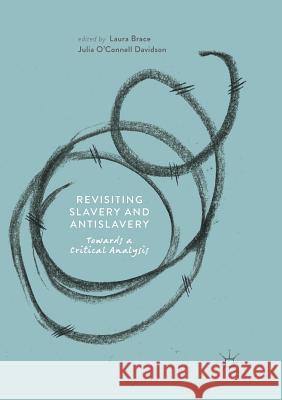Revisiting Slavery and Antislavery: Towards a Critical Analysis » książka
topmenu
Revisiting Slavery and Antislavery: Towards a Critical Analysis
ISBN-13: 9783030080570 / Angielski / Miękka / 2018 / 335 str.
Kategorie BISAC:
Wydawca:
Palgrave MacMillan
Język:
Angielski
ISBN-13:
9783030080570
Rok wydania:
2018
Dostępne języki:
Ilość stron:
335
Waga:
0.41 kg
Wymiary:
21.01 x 14.81 x 1.83
Oprawa:
Miękka
Dodatkowe informacje:
Wydanie ilustrowane











